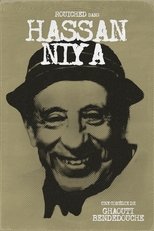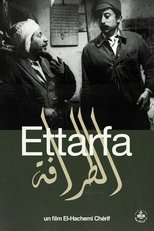Abdelkader Alloula
¿Quién es Abdelkader Alloula?
Abdelkader Alloula, lived and grew up in Oran. In 1956, he began amateur theater within the "Echabab" troupe of Oran after secondary studies in Sidi Bel Abbès and Oran. In this context and until 1960, he participated in several training courses and played successively in "Maghramin Bil Mel" by Mohamed Touati, "Roujouê Es Saâda", "Khedma Chrifa" and "Khadr El Yadine" by Mohamed Krachaï. He participates in internships and theater study and training courses, notably at the University Center for Theater Studies in Nancy as well as at the University of the Sorbonne. In 1962, he produced “El Asra” (The Captives) by Plaute as part of the troupe of the “Ensemble Théâtral Oranais”. In 1963, he was recruited by the Algerian National Theater (TNA) as an actor, and at the same time played in several films. Between 1964 and 1968, he staged several texts by contemporary authors including Rouiched, Tawfiq El Hakim and Maxime Gorki. He wrote and directed several works for the theater and became one of the major authors of his generation in Algeria.
In 1965, he participated in the creation of the National Institute of Dramatic and Choreographic Art (INADC) of Bordj El Kiffan. In 1967, he performed and directed three theatrical pieces from the universal repertoire (Sophocles – Aristophanes – Shakespeare) for Channel III radio. Between 1972 and 1975, he directed the Oran Regional Theater (TRO) where he promoted amateur theater and collective creations. He also directed the Algerian National Theater (T.N.A) in 1976. In 1990, he adapted for Algerian television five short stories by the Turkish author Aziz Nesin: "Lila Ma Majnoun", "Es Soltane Oual Guerbane", "El Wissam", “Echaab Fak” and “El Wajeb El Watani” produced for television by Bachir Bérichi. He is also the author of two screenplays: "Gorinne" (1972) and "Jalti" (1980), directed for television by Mohamed Ifticène. In 1983, he participated in the commentary for the film “Bouziane el Qual'i” by Belkacem El Hadjadj and in 1985 in the commentary for the film “How Much I Love You” by Azzedine Meddour.
On March 10, 1994, Abdelkader Alloula was shot dead outside his home, Rue de Mostaganem in Oran. A month after his assassination, the Regional Theater of Oran was named in his name as well as the Maison de la Culture de Tlemcen. In March 1999, the Abdelkader Alloula Foundation, led by his wife Raja Alloula for nearly 20 years, was created to preserve his legacy. Today, his plays are translated into several languages and he is considered the most translated playwright from Algerian Arabic to foreign languages.
Trabajos destacados
Géneros más habituales en las películas de Abdelkader Alloula
Series
Sin informaciónCompañeros de trabajo recientes de Abdelkader Alloula
Las imágenes y retratos de actores y actrices mostrados en este sitio web son obtenidos de la base de datos pública de The Movie Database (TMDb), utilizada bajo los términos y condiciones de dicha plataforma. En caso de que alguna imagen o fotografía sea incorrecta, ofensiva, o pueda infringir derechos de imagen o copyright, puede ser editada o eliminada directamente en TMDb. Esto provocará su eliminación automática en este sitio web. Adicionalmente, si usted desea solicitar la eliminación de una imagen directamente en nuestro sitio web, puede utilizar el formulario de contacto ubicado al pie de la página. Atenderemos su solicitud de manera expedita y tomaremos las medidas necesarias para garantizar el cumplimiento de los derechos aplicables.
The images and portraits of actors and actresses displayed on this website are sourced from the public database The Movie Database (TMDb), used in accordance with its terms and conditions. If any image or photograph is incorrect, offensive, or may infringe image rights or copyright, it can be edited or removed directly on TMDb. This will automatically result in its removal from this website. Additionally, if you wish to request the removal of an image directly from our website, you may use the contact form located at the bottom of the page. We will promptly address your request and take the necessary measures to ensure compliance with applicable rights.



